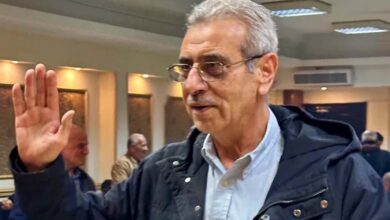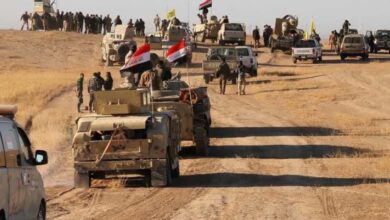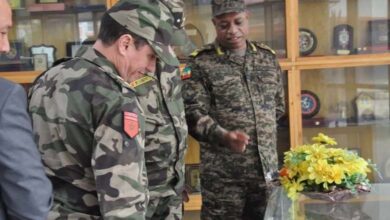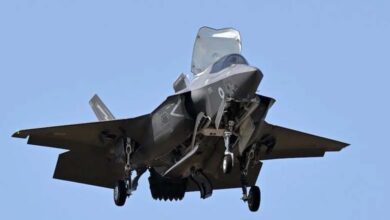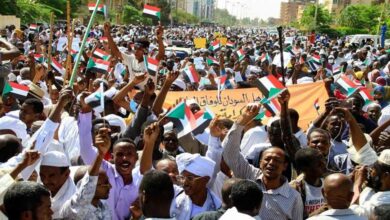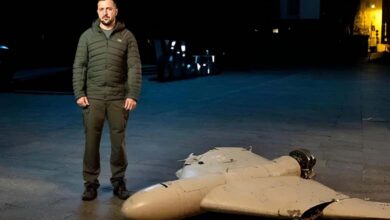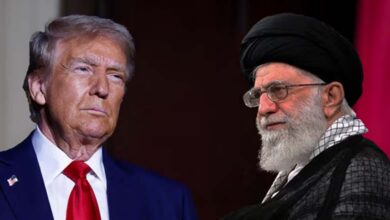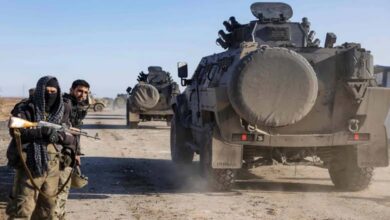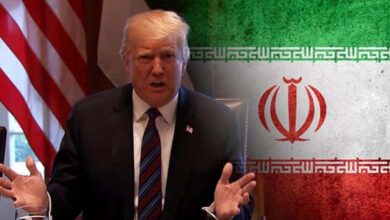Al-Sharaa Struggles to Assert Authority After Half a Year in Power
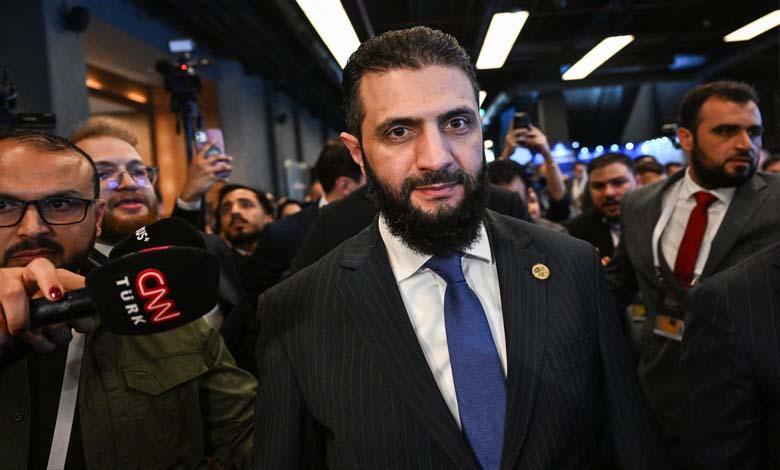
Involving minorities, negotiating with Kurds, integrating foreign fighters, and facing Israeli threats are among the key challenges confronting Syria’s new authorities.
-
Ahmed Al-Sharaa Woos Trump: Peace with Israel in Exchange for Lifting the Siege
-
Formation of a New Armed Group to Confront Ahmed Al-Sharaa – Details
President Ahmed al-Sharaa succeeded in garnering international support and lifting suffocating economic sanctions during his first six months in office. Yet, according to analysts, he now faces major challenges, primarily establishing effective governance, reviving the economy, and preserving national unity.
When he arrived in Damascus on December 8th, after toppling President Bashar al-Assad, al-Sharaa found himself confronting four centers of power: a central government in Damascus, a Salvation Government running Idlib in the northwest, another authority controlling areas held by Turkish-aligned factions in the north, and the Kurdish Autonomous Administration. Each possesses its own economic, military, judicial, and civil institutions.
-
Where Are Syria’s Muslim Brotherhood Headed? And What Is al-Sharaa’s Position Toward the Group?
-
Did Al-Sharaa Demand U.S. Protection to Attend the Arab Summit in Baghdad?
Radwan Ziadeh, executive director of the Syrian Center for Political and Strategic Studies in Washington, stated that “ensuring stability in a politically fragile country during such a turbulent period is a significant achievement.” He considers “successfully managing the transitional phase” — set to last five years — as “the most difficult challenge.”
Sectarian violence targeting the Alawite minority — which left more than 1,700 dead in two days — and then the Druze community, undermined trust in the government’s ability to secure stability and protect the rights of minorities anxious about their future.
-
Israeli Airstrikes Near Presidential Palace to Warn al-Sharaa Over Targeting Druze
-
ISIS Threatens al-Sharaa… Can the Group Still Operate in Syria?
“Dealing with minorities is one of the primary internal challenges,” Ziadeh explains, “and building trust among different components of society requires greater political effort to achieve coexistence and national unity.”
Al-Sharaa’s efforts to consolidate power face opposition from Kurdish demands for a decentralized system that allows them to continue managing their institutions — a model rejected by Damascus.
-
Al-Sharaa Responds to Criticism of His Government: Satisfying Everyone Is an Impossible Task
-
Will Al-Sharaa Renew His Relationship with the Muslim Brotherhood or Exclude Them from the Political Scene?
Senior Kurdish official Badran Jia Kurd stated, “The interim government must move away from security and military solutions to unresolved issues” and “be more open to including Syria’s diverse communities in the political process.”
The constitutional declaration makes no mention of elections during the transition, with legislative elections expected only after a new constitution is drafted.
Last month, U.S. Secretary of State Marco Rubio warned that the transitional authority, “facing severe challenges, may be only weeks away from a full-blown civil war,” which could “effectively divide the country.”
-
Al-Sharaa Pledges to Form an Inclusive Government in His First Speech to Syrians
-
Has al-Joulani become moderate or is he simply acting with pragmatism and caution? A political science professor responds
Neil Quilliam, a researcher at Chatham House, believes Al-Sharaa’s biggest challenge is “to map out a path forward that includes all Syrians, quickly enough, but without recklessness.”
Compared to other countries that experienced abrupt regime change, al-Sharaa has generally managed to maintain relative stability, despite dissolving former security and military structures.
Still, full security has not been restored. Kidnappings, assassinations, and arbitrary arrests continue to be reported by groups affiliated with the government or by unidentified actors, according to the Syrian Observatory for Human Rights and online testimonies.
-
Syrian Coast Events: Commitment to “Accountability” and Arrest of Suspects
-
A Secret Intelligence Deal between Turkey and Hayat Tahrir al-Sham… What Are the Details?
Sectarian violence, especially against Alawites, has raised doubts about al-Sharaa’s ability to rein in various factions, including radical jihadist groups that worry the international community. The U.S. has urged al-Sharaa to request their departure.
Recently, the authorities introduced reforms to restructure the military and security sectors, including a requirement for faction leaders to enroll in the military academy before being considered for promotion. However, the promotion of six foreign jihadists within the Defense Ministry sparked widespread criticism.
A Syrian source, speaking anonymously, revealed that the transitional government had previously sent a message to Washington pledging to “freeze the promotions of foreign fighters.”
-
Syria Monitor: 101 dead in clashes between pro-Turkish, Kurdish forces
-
Who is General Marhaf Abu Kasra, the New Syrian Defense Minister?
The issue of foreign fighters remains thorny: al-Sharaa cannot easily dismiss those who have fought alongside him for years, while their countries refuse to take them back.
In addition, thousands of ISIS fighters and their families remain detained by Kurdish forces. The current administration lacks the human and logistical capacity to transfer them to prisons under its control.
Al-Sharaa inherited a country on the brink of bankruptcy: a depleted economy, crumbling infrastructure, an isolated financial system, and a population largely below the poverty line, according to the UN.
-
Key Leaders of the “al-Assad Regime”: Where Are They Now?
-
Between Breaking Isolation and Renewing It: What Does the Lifting of Sanctions on Syria Really Mean? Experts Weigh In
Still, changes have been felt on the ground: fuel and imported goods, including fruits once unavailable, are now accessible. The U.S. dollar, once banned, is now widely used.
With the lifting of economic sanctions — especially American ones — al-Sharaa is, according to a close source, prioritizing poverty reduction and increasing individual income, which he views as essential for lasting stability.
But sanctions relief alone is not enough. Significant reform is required.
Economist Karam Shaar told AFP, “Clarity of vision — meaning political stability — is vital for economic recovery, but key regulatory frameworks and investment laws remain ambiguous.”
-
Al-Assad Regime Remnants Seek to Return Syria to Chaos
-
Have Foreign Fighters Become a Burden on the New Syria?
The government is currently reviewing its investment law and working to create an environment attractive to foreign investors. Al-Sharaa has said such investment is critical for rebuilding infrastructure and public services.
Restoring electricity, education, and agricultural production is essential to reviving destroyed areas and encouraging the return of millions of refugees — a goal shared by European nations and Syria’s neighbors such as Turkey, Jordan, and Lebanon.
However, foreign support and sanctions relief come with conditions. The U.S. has emphasized one in particular: Syria’s participation in normalization agreements with Israel, which has launched hundreds of airstrikes in Syria since al-Assad’s fall and continues incursions in the south.
-
Hezbollah’s Violations Rekindle Tensions at the Syrian-Lebanese Border
-
ISIS Threatens al-Sharaa… Can the Group Still Operate in Syria?
Quilliam notes that continued Israeli escalation keeps Damascus “far from considering normalization, even under significant pressure from the U.S. or the international community.”
While Damascus has not made its position on normalization explicit, it has acknowledged indirect talks with Israel aimed at de-escalation.
-
After 13 Years… Syria Regains Its Seat at the Organization of Islamic Cooperation
-
The Emir of the Turkestan Islamic Party Leads Fighters in Syria from Kabul… What’s the Story?
-
The U.S. Administration and Syria: Caution and Skepticism Towards the New Regime Led by Ahmad Al-Sharaa


